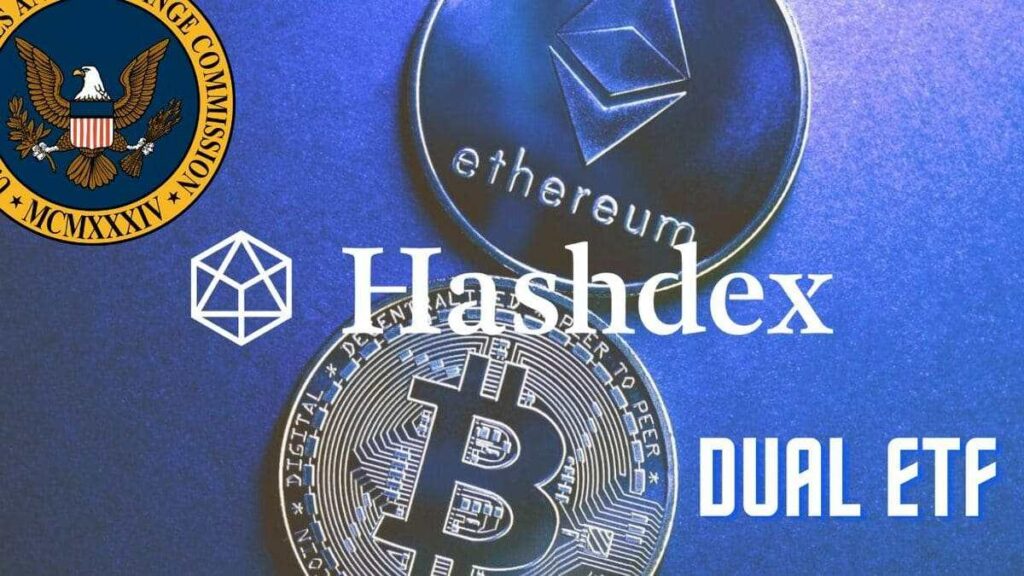South Korean crypto policies have increasingly become a staple in the election manifestos of various political parties in recent years.
It indicates, besides embracing digital transformation, that the migration seeks to capture a very young electorate highly regarding creativity and visionary leadership.
More so, the fact that South Korea is one of the leading technology giants means that they have to champion the course of crypto-friendly policies to this effect, not just to be highly fundamental but also to impact the fate of voters and their take on the national digital economy.
Crypto-Friendly Policies in South Korean Politics
To try and capture the youth vote and tech enthusiasts, South Korean political parties are increasingly advocating for crypto-friendly policies.
The new strategy seeks to capitalize on the growing interest in blockchain technology and digital currencies worldwide as part of a larger effort to incorporate innovations into national economic frameworks.
The adaptation of these parties to the digital age has put initiatives that will ensure a friendly atmosphere that allows for the investment of cryptocurrencies and innovation at the front of these party platforms, possibly remaking the South Korean political landscape.
Overview of South Korea’s Political Landscape
The political landscape in South Korea is characterized by its dynamic and quick changes, with policy discussions frequently centered around innovation and technology.
The major political entities, including the conservative People Power Party and the more liberal Democratic Party of Korea, have historically pivoted their platforms to harness technological advancements to secure electoral advantages.
In recent years, this focus has shifted towards cryptocurrencies and blockchain technology, recognizing their potential to drive economic growth and modernization.
Major Political Parties and Their Stand on Cryptocurrencies
The People Power Party has proposed numerous initiatives to liberalize the cryptocurrency market to encourage innovation and investment.
Their approach is to position South Korea as a global leader in blockchain technology, appealing to young entrepreneurs and tech professionals.
Conversely, the Democratic Party of Korea emphasizes consumer protection and robust regulatory frameworks to integrate cryptocurrencies safely into the national economy, aiming to prevent market abuses and protect investors.
Historical Political Attitudes Towards Technology and Innovation
Historically, South Korean politics has demonstrated a strong inclination towards embracing technological innovation to spur economic development. This tradition continues with the adoption of crypto policies.
Early in the 2000s, the country had pursued an aggressive stance on information technology that led it to take a leading global position in several tech sectors and set the stage for its current engagement with cryptocurrency.
In such a changing landscape, integrating crypto-friendly policies is viewed as a key development for political parties in South Korea seeking appeal among a wider voting population, most so for those inclined digitally and being progressive economically.
Challenges and Controversies Surrounding South Korean Crypto Policies
Adopting crypto-friendly policies is not without its controversies and challenges. These include regulatory issues and the broader economic implications that such policies might engender.
Regulatory Concerns and Economic Implications
The push for deregulation in the crypto sector raises significant concerns about financial stability, fraud, and market manipulation.
The complexity of balancing innovation and consumer protection is exacerbated by the volatility of cryptocurrencies, a problem that South Korean regulators must overcome.
Economic experts caution that without stringent regulations, the integration of cryptocurrencies might lead to financial bubbles and investor losses.
Public and Political Opposition to Crypto Adoption
Not everyone on the population or political spectrum supports the rapid adoption of cryptocurrency policies.
This argument can be supported by pointing out that it might lead to an unequal benefit distribution and exacerbate the problem of wealth inequality.
Therefore, opponents of crypto-friendly policies usually argue for holistic economic policies that do not necessarily focus on cryptocurrencies but instead include them as a secondary factor.
Future of Crypto-Friendly Policies in South Korean Politics
As South Korea continues to advance its digital economy, the trajectory of crypto-friendly policies remains a hotly debated topic.
Political parties are eager to use these technologies for their respective electoral and economic advantages, but the road ahead is challenging and uncertain.
Expert Predictions and Potential Scenarios
Experts predict that as global trends in cryptocurrency evolve, South Korean policies will need to adapt to maintain competitiveness and security.
Potential scenarios include greater institutional involvement and possibly establishing a national digital currency to stabilize the market and ensure a controlled integration into the global financial system.
Role of International Crypto Trends on Domestic Policy Making
Global market trends and international regulatory developments are having a major impact on South Korea’s cryptocurrency policies.
As countries worldwide begin to solidify their cryptocurrency frameworks, South Korea may find itself adjusting its policies to align with international standards and practices, ensuring both competitive advantage and regulatory compliance.
Final Thoughts and Frequently Asked Questions:
The integration of crypto-friendly policies within South Korean political agendas represents a strategic move to appeal to a younger, tech-oriented electorate and influence the country’s digital economic landscape.
While these policies promise to drive innovation and economic growth, they also present challenges, including regulatory concerns and the potential for exacerbating economic disparities.
As the global cryptocurrency landscape evolves, South Korea’s political parties must balance innovation with regulation to maintain economic stability and competitiveness.
FAQ
- What crypto-friendly measures are being implemented by South Korean political parties?
- South Korean political parties are advocating for deregulation to encourage crypto investments, implementing robust regulatory frameworks for consumer protection, and integrating cryptocurrencies into national economic policies.
- How do these policies affect voter appeal among youth?
- These policies specifically target the young, tech-savvy demographic that is active in cryptocurrency markets, aiming to garner their support by aligning with their economic interests and technological preferences.
- What are the economic implications of adopting crypto policies in South Korea?
- While potentially boosting innovation and economic growth, these policies also pose risks such as financial instability and market volatility if not properly regulated.
- What challenges do political parties face with crypto policy implementation?
- Challenges include balancing the innovation benefits against risks like fraud and market manipulation and addressing public and political concerns about the uneven benefits of such policies.
- How might global cryptocurrency trends impact South Korean politics?
- Global trends may compel South Korea to adjust its policies to international standards, influencing domestic policy-making to maintain competitiveness and ensure regulatory compliance.




 Crypto2 years ago
Crypto2 years ago


 Blockchain4 years ago
Blockchain4 years ago


 Press Release4 years ago
Press Release4 years ago


 Press Release4 years ago
Press Release4 years ago


 Blockchain4 years ago
Blockchain4 years ago


 Press Release3 years ago
Press Release3 years ago


 Press Release4 years ago
Press Release4 years ago


 Blockchain4 years ago
Blockchain4 years ago









